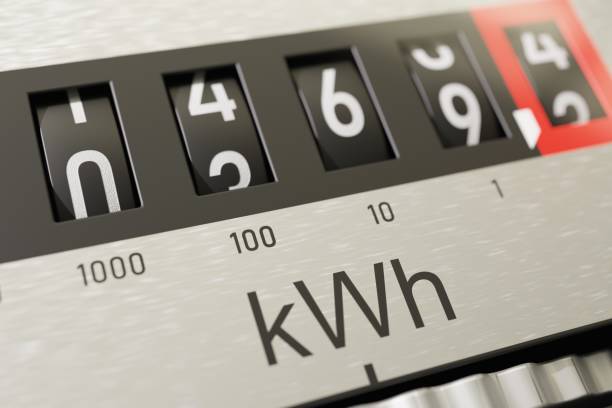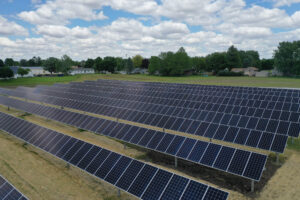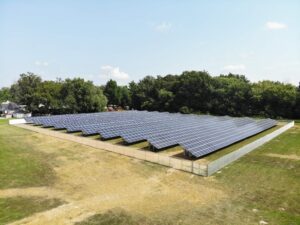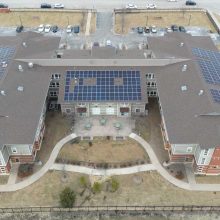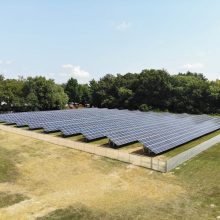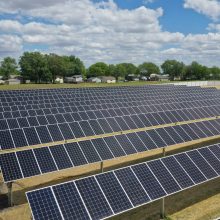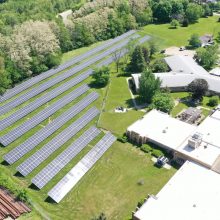
In this era where renewable energy is not a mere concept but a rapidly evolving reality, solar power certainly stands out. The application of solar power isn’t just about harnessing the sun’s energy; it’s about understanding and deploying the metrics that measure its effectiveness and efficiency. One such critical metric is the concept of kilowatt hours (kWh). This measure is fundamental to assessing energy consumption and optimizing the performance of your solar installations. Let’s venture into the realm of kilowatt hours in the context of solar energy and highlight its importance for homeowners and businesses contemplating solar solutions.
What Exactly is a Kilowatt Hour?
A kilowatt hour (kWh) is a unit of energy at its most basic. It represents the quantity of energy you would consume if you ran an appliance of 1,000 watts continuously for one hour. But when we talk about solar energy, the concept of kWh becomes even more relevant. It measures the amount of electricity that a solar panel system can produce or the amount of power that a home or business consumes over a certain period. Knowing your kWh consumption or production helps you understand your energy usage, optimize your solar panel system, and make informed decisions about energy conservation.
The Role of Kilowatt Hours in Solar Panels
When it comes to evaluating solar panels, the kWh rating is indispensable. This rating helps to determine the amount of electricity a particular solar system can generate under optimal conditions. For instance, a solar panel system with a capacity of 5 kW, receiving about 4 hours of direct sunlight daily, could produce up to 20 kWh of electricity in a single day (5 kW x 4 hours). However, several factors can affect the actual output, including the geographical location, prevailing weather conditions, and the efficiency of the solar panels. For example, areas closer to the equator typically enjoy more peak sunlight hours compared to regions farther north or south, which influences the kWh production.
Calculating Solar Energy Production
Understanding how to calculate solar energy output in kWh is crucial for anyone looking to install a solar power system. This calculation not only aids in sizing the system according to your energy needs but also in estimating potential energy savings and the system’s return on investment. The essential formula is straightforward: Daily kWh production = System Size (kW) x Average Sunlight Hours per Day. By using this formula, homeowners and businesses can estimate the amount of power their system will generate and determine the feasibility and scale of their solar energy projects.
kWh and Solar Battery Storage
Kilowatt hours also play a significant role in the context of solar battery storage. Solar batteries’ capacities are often expressed in kWh, indicating the total amount of electricity they can store. This capacity becomes critical during periods when the solar panels aren’t producing electricity, such as during nighttime or on cloudy days. Choosing the right battery capacity is essential for maximizing the usefulness of a solar energy system, ensuring that excess power generated during peak hours is not wasted but stored for later use.
Why Kilowatt Hours Matter
Understanding and managing kWh consumption is key to maximizing the financial benefits of going solar. By reducing reliance on grid electricity, especially during peak tariff hours, solar energy users can significantly decrease their electricity bills. Additionally, in many regions, solar energy producers can benefit from net metering policies, where they receive credits for the surplus energy they feed back into the grid. Moreover, with increasing awareness of environmental issues, reducing kWh consumption from non-renewable sources has a direct positive impact on carbon footprint, positioning solar kWh not just as a measure of energy, but also of environmental responsibility.
Final Thoughts
Kilowatt hours are more than just numbers on your energy bill; they are the bridge between solar technology and tangible energy benefits. Understanding and optimizing kWh production and consumption can lead to significant advantages, whether you are a homeowner seeking to reduce utility costs or a business aiming to boost its green credentials.
If you’re ready to explore how solar energy can benefit your home or business, or if you have questions about your specific energy needs, we invite you to reach out. Our team of experts is dedicated to providing you with tailored solutions that harness the power of solar effectively and sustainably. Let’s work together to illuminate the possibilities that solar energy holds for your future. Connect with us today to learn more about your solar options and how you can make the most out of every kilowatt hour. You can reach us via email at info@windfree.us or call us at (312) 588 – 6953.

